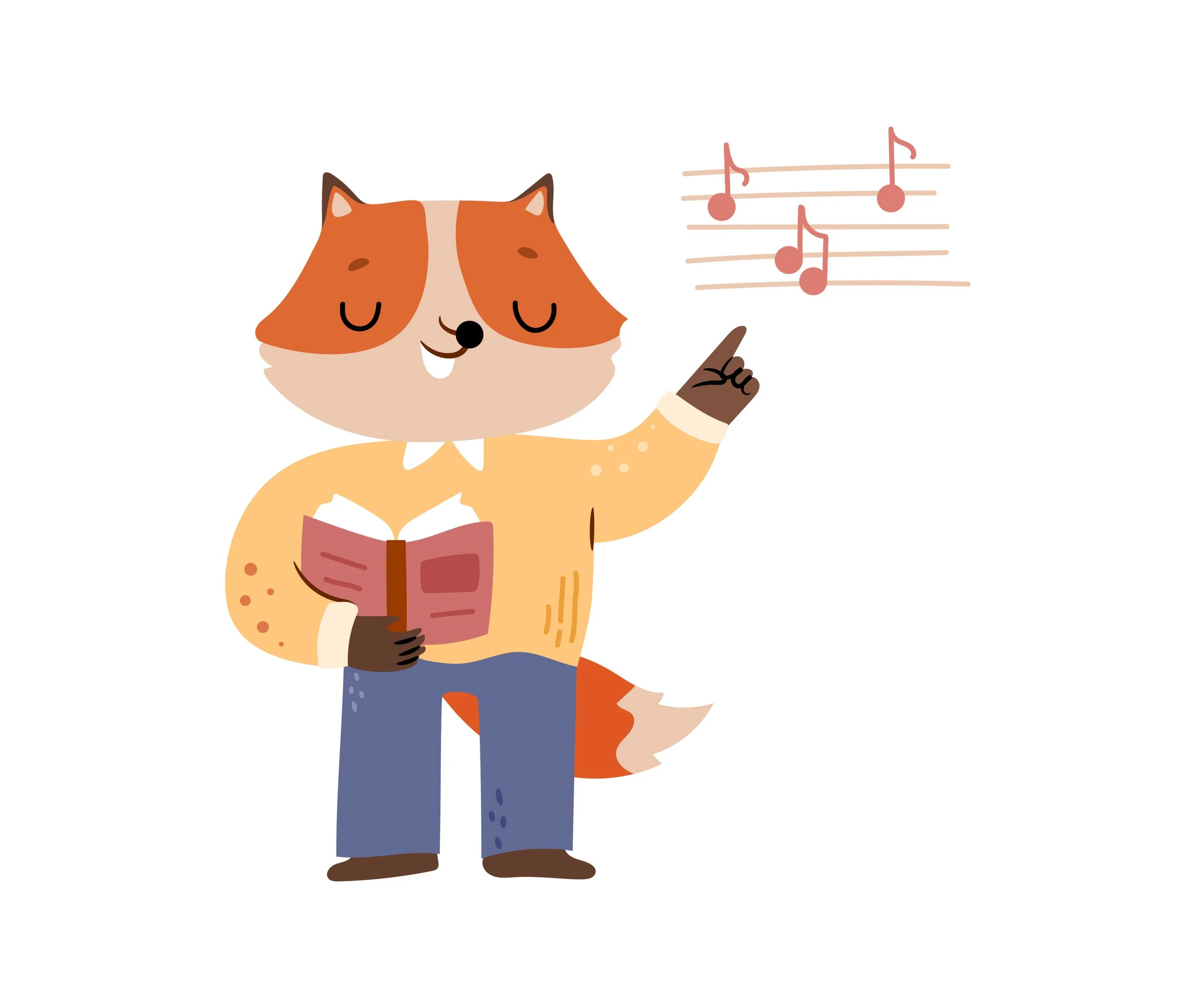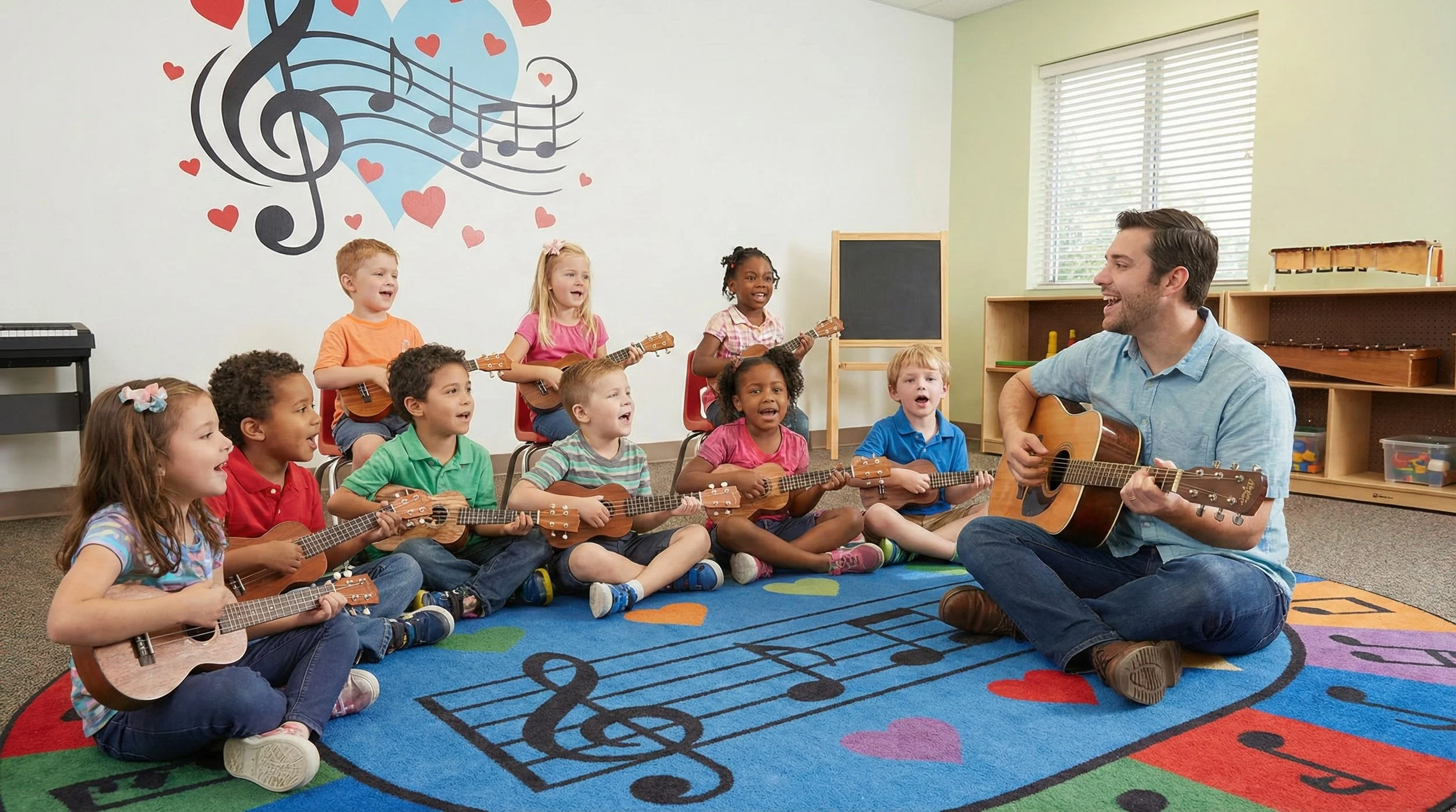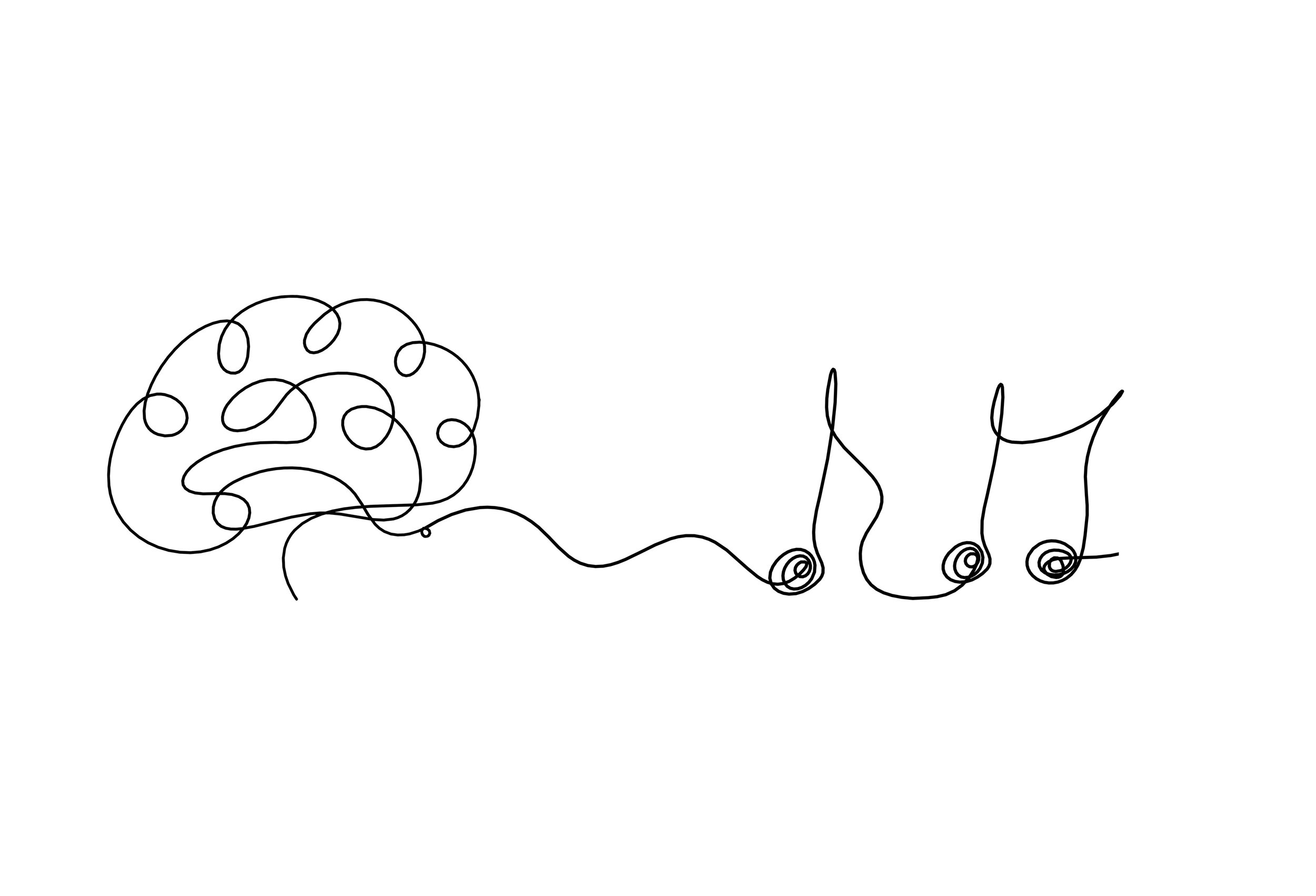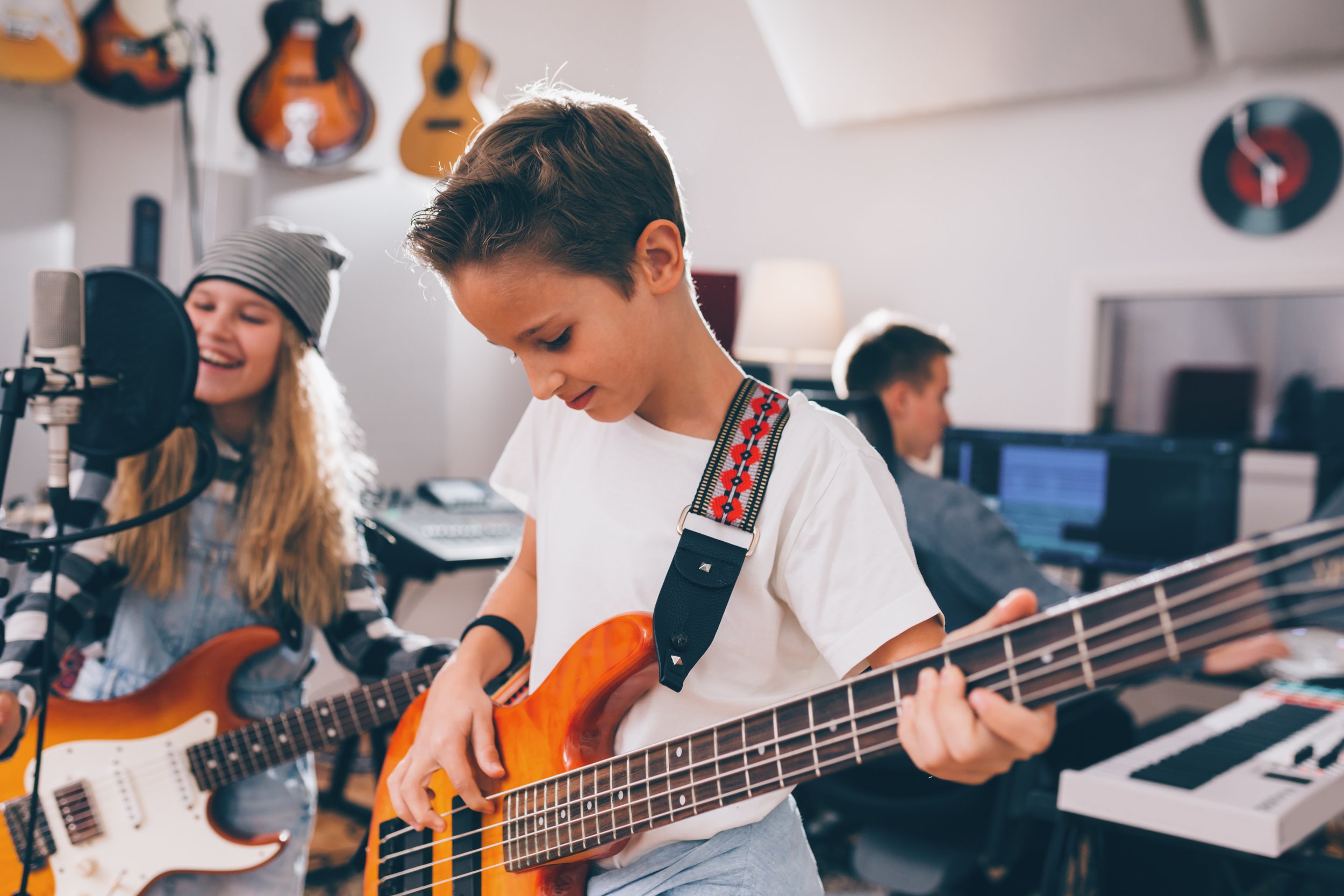
Blog
Welcome to our blog section! Here, you’ll find helpful tips, fun facts, and educational articles, when it comes to music. Whether you’re a beginner or a pro, there is always something new to learn. Explore with us!
Private, Group, or Online? Choosing the Perfect Piano Lesson Format
Choosing the right kind of piano lessons can make all the difference in how a student learns and stays inspired. Today, music lessons can take many forms, private instruction, group classes, in-home learning, or even virtual formats that support different learning styles. Each option has its own rhythm, pace, and personality, shaped by the goals of the student and the guidance of experienced Piano Teachers.
From Practice Room to Spotlight: A Step-by-Step Guide to Confident Performances
A confident performance is built long before the first note. It grows through preparation, steady habits, and the small choices musicians make both on and off stage. When you understand what performance truly requires, the spotlight feels less like pressure and more like an opportunity to share the music you’ve practiced with care.
The Hidden Link Between Music Education and Academic Success
When children take music lessons, they’re doing far more than learning notes and rhythms, they’re building the same mental skills that help them excel in school. From math and reading to science and problem-solving, music education develops the brain in ways that strengthen focus, memory, and creativity. Through structured music instruction, children enhance motor skills, language development, and executive function, forming a foundation for lifelong learning and success…
When It’s Not Perfect: Practical Ways to Handle Mistakes on Stage
The best way to handle mistakes on stage is to keep going, stay calm, and let your preparation carry you through. Most audiences won’t notice a missed note or small slip unless you react to it. Whether you’re a singer working on your vocal range or an instrumentalist perfecting technique, stage recovery is a part of every vocal journey and musical path…
How Live Music Shapes Young Minds and Hearts
Live music does more than entertain. It engages a child’s brain, emotions, and imagination all at once, helping them develop focus, empathy, and confidence that carry far beyond the stage. Unlike recorded sound, live performances at live music venues create an immersive, multisensory experience that strengthens learning and inspires creativity…
Beginner’s Guide to Music Composition: How to Write Your First Piece
Starting your first composition is simple, once you know the basics. Music is built from simple elements, a melody, rhythm, and structure, that anyone can shape into a complete piece. With a few clear steps, you can take an idea that begins as a hum or a rhythm and turn it into something you can share and perform…
How Music Feeds the Brain: Science, Learning, and Emotional Health
Neuroscientists often describe it as “brain food” because it strengthens memory, focus, problem solving, and emotional balance. Just as a balanced meal nourishes different parts of the body, music activates multiple areas of the human brain at once, skills that support learning and wellbeing at every age. This is why both music therapy and music education are now widely recognized in research on cognitive functions and long-term mental health…
The Parent’s Guide to Picking the Best Piano Teacher
The right piano instructor understands how your child learns, adapts piano lessons to their needs, and makes progress feel exciting. They combine musical knowledge, music theory, and patience with flexibility and the ability to connect with kids. More than teaching notes, a good Music Teacher guides students through challenges, celebrates achievements, and sparks a love for music that lasts…
Unlocking Creativity with Music Theory: Simple Tools For Music Composition
That moment when a familiar tune suddenly feels new is not luck. It is music theory helping ideas land. Think of theory as a small toolbox. With it, you can shape melody, pick chords, set a steady beat, and build a song structure that makes sense to the ear. For anyone interested in composing music or developing their own musical works, these basics are the foundation of strong songwriting…
Sharing Songs, Sharing Stories: How to Bring Music Into Your Relationships
Want to know one of the easiest ways to connect with people? It’s music.
A single song can spark a memory, help someone feel understood, or give families and friends a reason to come together. Music isn’t just background noise, it’s part of the stories we share. Listening to music is also a simple form of music education, helping us grow socially and emotionally while improving our overall mental health…
How Music Brings Us Closer and Builds Stronger Communities
You don't need to speak the same language to connect through music. Whether you're grooving to a beat, singing in a school choir, or jamming with friends, music creates an instant bond, even among strangers…
What Music Teaches Us (Without a Single Word)
If you’ve ever played a musical instrument, gotten lost in a song, or danced to your favorite tune, you’ve experienced firsthand how music education can quietly change you. There’s no rigid plan for this change, it happens naturally. As you practice, take music lessons, and spend time listening to music, something remarkable occurs: your patience grows, your musical skills deepen, and you learn to approach challenges in new ways…
The Role of Guitar Lessons in a Child’s Development
When parents sign their children up for guitar lessons, it’s often with the hope that they’ll learn a fun hobby or pick up a skill that brings a little extra joy into their lives. Guitar lessons are certainly an excellent way for kids to explore music, but their impact goes far beyond learning to play a few favorite songs. In reality, the guitar can become a powerful tool for growth, helping children discover new ways to think, feel, and express themselves….
The Role of Music Education in Personal Development for Adults vs. Children
Music holds a special place in our lives. For some, the journey begins in childhood; for others, the spark is discovered much later in life. No matter when it starts, music education reveals something important about who we are, how we feel, and who we can become.
While the path may look different for children and adults, the rewards are equally profound at any age…
The Power of Music: How It Shapes Our Lives
Music is one of the oldest and most universal forms of language. It has been used to relax, energize, and communicate across cultures and generations. But music plays a significant role in cognitive, emotional, and social development, especially at a young age. Whether you're listening to your favorite song, taking music lessons, or singing with a group, the benefits of music on well-being are noteworthy…
How to Overcome Stage Fright as a Singer: 8 Practical Tips That Work
Stage fright is something all vocalists experience, from the biggest superstars to a newbie singer; it affects them equally no matter the skill level. Stepping up for your first open mic or performing on a big stage, it is natural to feel overwhelmed, but those nerves don't have to control you…
Sound, Strength, and Stamina: The Full-Body Benefits of Music
Music has been known to affect the senses and improve wellbeing, but there are benefits that music has on your body. Dancing to your favorite song, tapping your foot to the rhythm, or singing out loud, every interaction with music creates physical changes that enhance your quality of life…
Learning the Language of Music: Helping Students Play With Confidence
Music theory is often seen as complex, but it simply explains how a piece of music works. Music theory provides the structure and understanding that accelerates musical learning for students.
At its core, music theory is about building a strong foundation that helps musicians, no matter their skill level or instrument, connect more deeply with the music they play and hear…
How Understanding Music Theory Makes You A Better Musician
“Music theory” might sound like a daunting math problem or a complex puzzle, but it’s just understanding how music works. It isn’t like math; it's simply a way of understanding musical structure. This deep foundation shows why certain chords and notes sound more soothing and how rhythms are created. Learning the logic of music theory helps you gain better insights and improve your skills. It lets you see patterns you might not have noticed before…
Top 6 Secrets of Music Theory
Want to know the ultimate music secret? It's music theory. It is basically a set of musical secrets that help explain how songs are built, why they sound the way they do, and how you can become a better musician just by understanding the music composition. No matter your skill level, if you're just starting out or already play an instrument, these six secrets will help you unlock the music you love…




















